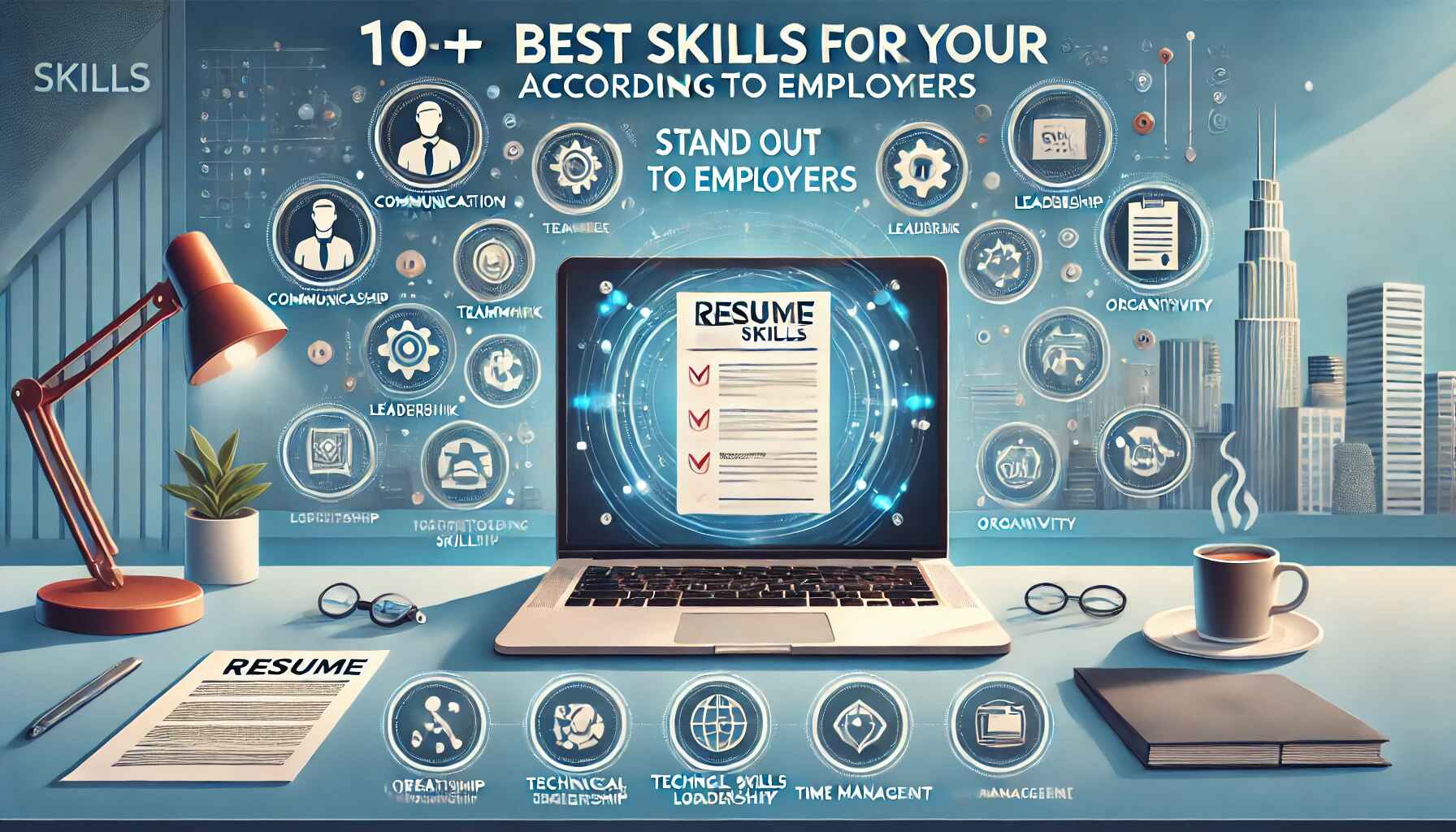10+ Best Skills For Your Resume (According to Employers)
Well-written resumes competent on the right skills or areas of expertise are a prerequisite for qualifications that stand applicants apart today. Employers want to find candidates with both the technical and non-technical components of a complete personality such as interpersonal and adaptable value. Here are the top 10+ skills that employers are looking for and how to better put them into your resume.
Why Skills Matter on Your Resume
The Weight Skills Have on Getting You Your Dream Job
They are all what a professional identity is structured around, and they define qualifications and suitability concerning particular jobs when hiring. This demonstrates that you are the employee for that job. It maximizes placement chances for an applicant in an applicant tracking system (ATS)-scanned keyword-rich resumes.
Hard Skills Soft Skills- The Balance
For example, the employer seeks a balance between hard skills-such as the teachable skills like software applications-which are technical and soft skills-which are more applicable in internal interpersonal qualities such as teamwork, communication, etc. Hard skills demonstrate that you are technically adept, while soft skills apply in functionality with others.
Top 10+ Skills Employers Look For
Communicative Skills
This is one way to say that strong communication is the foundation of workplace success.
Communications
They may be carriages drafting emails, delivering presentations or just driving actions but in all these modes, the need for clear communication is pronounced to put ideas across.
Effective Listening and Presentational Skills
Effective listening is really the foundation upon which would enable one to understand, and the effective presentation skills would let one put across the information confidently.
Problem Solving
Employers want people who have solutions with difficulties.
Analytical Thinking
Ability to separate big problems into small manageable solutions is the exact proof of strategic mindset.
Creativity and Innovation
It has also been proven that most problems adhere to new approaches, which thus have created several new things that organizations value.
Leadership and Management
Leadership is not just about being in the managerial role but rather leading the teams towards success.
Delegation and Team Building
Delegation of tasks ensuring the effectiveness of the team leads the co-action for all successful projects.
Conflict Resolution
An individual resolves a disagreement professionally, thereby ensuring that there's a conducive work environment.
Technical Skills
It is that special-income technical aspect that varies in different industries but is established worldwide.
Industry Specific Tools and Software Proficient
Master these and their guises such as Excel, Salesforce, or even the clever but tricky Adobe Creative Suite, and you could have the edge.
Data Analysis and Coding
When looking across industries, one sees that an increasing demand grows for these niches: Data analysis and basic coding skills.
Adaptability and Flexibility
It is also essential that adaptation to demands undergoes very rapid changes in advancement.
Organizatıon and Time Management
Efficient time management allows one to produce well, whilst organizational ability can guard against committing oversights.
Team Work and Collaboration
Team-oriented professionals work together in achieving shared objectives.
Emotional Intelligence
Emotional intelligence enables effective interpersonal interactions.
Self-Awareness and Empathy
Understanding your emotions and empathizing with others enhances workplace relationships.
Handling Feedback Effectively
Using constructive criticism to improve demonstrates maturity and resilience.
Digital Literacy
In today’s digital age, tech-savviness is essential.
Social Media and Content Creation
Proficiency in platforms like LinkedIn or Instagram can aid in brand-building efforts.
Online Research and Cybersecurity Basics
Knowing how to find credible information online and understanding basic cybersecurity ensures you’re a valuable asset.
How to Highlight Skills on Your Resume
Placing Skills in the Summary Section
Start your resume with a summary highlighting your most relevant skills and accomplishments.
Using Bullet Points for Impact
Clearly list your skills in a dedicated section to ensure they’re easily scannable.
Tailoring Skills to Job Descriptions
Customize your resume for each application by emphasizing skills mentioned in the job posting.
How Employers Evaluate Skills
The Role of Keywords in Applicant Tracking Systems
ATS software scans resumes for specific keywords related to required skills. Ensuring your resume aligns with job descriptions increases your chances of progressing to the interview stage.
Behavioral Interviews and Skill Assessments
Employers often assess skills through scenario-based questions or practical tests during the interview process.
FAQs About Skills on Resumes
What Skills Should I Put on My Resume?
Focus on skills relevant to the job description, blending hard and soft skills.
How Many Skills Should I Include?
Aim for 8-12 key skills tailored to the role.
Can I List Non-Work-Related Skills?
Only include non-work-related skills if they’re relevant to the position or showcase transferable abilities.
How Do I Prove I Have These Skills?
Provide examples in your work experience section or during interviews.
Should I Prioritize Hard or Soft Skills?
Strike a balance based on the job requirements, with a slight emphasis on the more critical category.
How Often Should I Update My Skills?
Regularly update your skills to stay competitive and reflect new proficiencies.
Conclusion: Building a Skill-Focused Resume
Your resume should be a dynamic document that evolves with your career. By strategically showcasing a mix of hard and soft skills, tailored to the roles you’re pursuing, you’ll position yourself as a top candidate in any industry.









